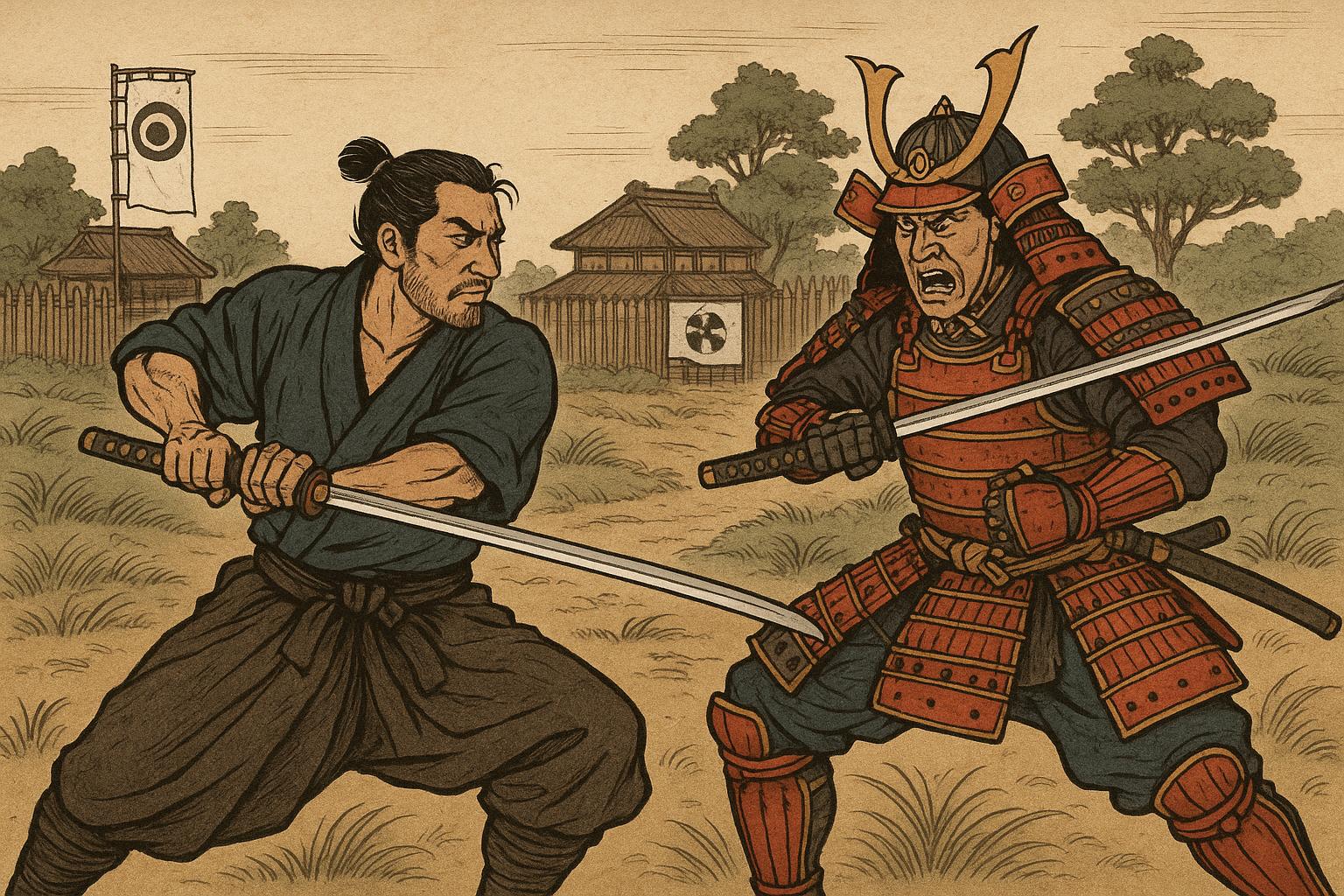Understanding the Role of Ronins in Clan Rivalries
Throughout Japanese history, the figure of the ronin embodies a distinctive complexity. In the milieu of clan rivalries, ronins exerted a pivotal influence, leaving an indelible mark on the feudal political landscape. Their actions changed the course of events in ways that still echo through time.
Who Were Ronins?
The term ronin is traditionally used to denote a samurai who found himself masterless. Various circumstances could lead to this, such as the death of a master, disgrace, or the transfer of power, which left the ronin without a lord. This state of being was quite precarious socially, yet the skills and knowledge held by ronins made them indispensable elements in the charged political atmosphere of feudal Japan.
In essence, being a ronin did not merely indicate a lack of employment; it signified a profound loss of identity and social standing within the hierarchical samurai culture. The absence of a master left these warriors in a state of liminality—a place between belonging and exclusion. Despite this, or perhaps because of it, ronins became sought-after individuals, especially during times of intense competitive clan dynamics.
Participation in Clan Rivalries
The rigid samurai hierarchy predominantly based on loyalty could transform dramatically when a samurai became a ronin. The absence of a master was more than an employment void; it was a crisis of identity and status. Many ronins actively sought to align themselves with new lordly figures or political causes, not just to regain employment, but to recover the sense of identity that had been inextricably linked to their service.
Opportunities arose where ambitious clans engaged these masterless warriors to enhance their military capabilities. The inherent flexibility of ronins—because they were not tethered to a single lord—meant they could serve as mercenaries. Clans engaged them, trading their martial skills for monetary compensation or the promise of renewed status. This arrangement was not always straightforward, as ronins had a reputation for being potentially unstable due to their lack of allegiances to any single clan.
Strategic and Military Contributions
In terms of their military contributions, ronins were often among the most seasoned and highly trained fighters available. Their mastery of the martial disciplines rendered them attractive additions to any clan’s fighting force. Additionally, their experiences under previous masters often provided them with strategic insights that could prove invaluable in battles and skirmishes.
During periods of clan hostilities, the expertise of a ronin might shift the momentum of a confrontation. Their depth of knowledge in tactics and strategy could be instrumental in orchestrating or countering military maneuvers. Despite their skills, their loyalty was often questioned, as their link to any particular clan could be transient, driven more by immediate goals than by long-term allegiance.
The Cultural Impact of Ronins
Aside from their tangible military engagements, ronins also left a substantial cultural imprint. In an era defined by a stringent class structure, the existence of ronins exemplified a form of social fluidity. Their narratives provided an intriguing subplot within the grand tapestry of samurai lore, showcasing both the possibilities and challenges of life within the fluctuating landscape of clan politics.
Ronins have taken on a place in cultural lore far beyond their time. Stories, such as that of the 47 Ronin, encapsulate both the virtues and the tribulations of loyalty, honor, and revenge. These have transformed into powerful symbols. The narrative of the masterless samurai navigating through shifting allegiances has contributed to expanding the depth of samurai cultural mythology.
Conclusion
In summation, ronins significantly influenced the socio-political fabric of feudal Japan. Their journey from masterlessness back to purpose and position within the complexities of clan rivalry underscores their importance as figures who both challenged and defined their era. The stories and legacies of ronins continue to echo in modern interpretations of samurai culture, contributing to an ongoing fascination with their roles both in history and myth.
These narratives continue to serve as lenses through which we can appreciate the tumultuous times of feudal Japan. They provide insight not only into the past but also into the enduring human themes of identity, loyalty, and the quest for purpose within a shifting societal landscape. While the direct political impact of ronins may have diminished over the centuries, their cultural influence remains potent and relevant.
For those interested in delving deeper into samurai history and the intricacies of feudal Japan, resources such as Sengoku Jidai offer detailed insights into this fascinating and turbulent period.

